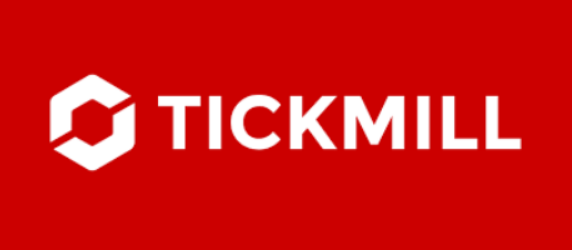
Signup and get your account managed by a Top Broker

Browsing forex account managers can be daunting, especially as it will significantly impact your chances of forex trading success. You need to pick a forex account management provider you can trust with what it takes to make consistent gains in the forex market on your behalf. You also want to select the correct type of account for your needs, given your trading aims, budget and appetite for risk.
In this article, you will learn about the types of managed forex accounts you can choose from, their risk profiles and modes of operation, the fees and deposit amounts required, and the importance of monitoring your trades to assess your fund manager’s performance.
| Broker | Features | Min Deposit | EURUSD Spread | ||
|---|---|---|---|---|---|
 Your capital is at risk
US Clients: No Regulated : Yes Your capital is at risk
US Clients: No Regulated : Yes
|
– 40% New Member Bonus
|
$100 | Fixed |
Sign
Up
Europe* CFDs are complex instruments and come with a high risk of losing money rapidly due to leverage. 79% of retail investor accounts lose money when trading CFDs with this provider. You should consider whether you understand how CFDs work and whether you can afford to take the high risk of losing your money.
|
|
 Between 74-89 % of retail investor accounts lose money when trading CFDs
US Clients: No Regulated : Yes Between 74-89 % of retail investor accounts lose money when trading CFDs
US Clients: No Regulated : Yes
|
|
$200 | NDD 0.09 / Standard 0.69 |
Sign
Up
Between 74-89 % of retail investor accounts lose money when trading CFDs
|
|
 Your capital is at risk
US Clients: No Regulated : Yes Your capital is at risk
US Clients: No Regulated : Yes
|
– CySEC, FCA, FSCA, SCB Regulated |
$100 | |||
|
|
|||||
Types of Managed Forex Accounts
There are generally three types of managed forex accounts – individual, pooled, and variations of the “PAMM” account.
Individual Account
This account is exactly what it sounds like – a separate account in your name where a professional trader makes all of the buy/sell decisions on your behalf. These decisions will be based on the level of risk you feel comfortable with, which will be discussed at the outset. The one drawback with this type of account is that you have to make your business worthwhile, so there may be a minimum deposit requirement that exceeds $10,000. If this level of commitment is a problem for you, you may want to consider the other two account types. Fees will be customised but assessing performance expertise can be difficult. Prior returns will be cited, but there will be no way to confirm them. Reading over client testimonials may help prospective traders to get an idea of the benefits and drawbacks of the specific accounts and to choose one that suits their aims and budget.
Pooled Account
With a pooled account, you need to think of a mutual fund, where many investors pool their capital together in a separate fund and then share in the profits after fees and expenses. Brokers that offer these pooled funds will generally have several funds to choose from, each with its risk/reward profile, fee demographics, and terms and conditions. It is best to read each fund prospectus to determine the right fit for your objectives. As for performance, each fund will have a published history for several prior years, but, as always, past performance is never a perfect indicator of what will transpire in the future. The benefit of a pooled fund is that you can enter the fund with less money than for an individual account. Your initial deposit may be as low as $2,000, but there could be a required period for participation before a withdrawal can be made. Check the rules of the fund before jumping in with both feet.
Percent Allocation Management Module (PAMM)
This approach to account management may go by the name of PAMM, LAMM, or even MAM. Each method uses sophisticated trading software to allocate gains, losses and fees on an equal percentage basis to each client. These concepts are relatively new and offer another level of fraud protection since you are still dealing directly with your traditional forex broker of choice. Your broker enlists the professional trader, and you execute a Limited Power of Attorney agreement with the trader, which allows them to trade on your behalf. If you are unhappy with performance at any time, then you may terminate the arrangement. There are no “lock up” periods, so to speak. LAMM software also allows leverage to vary by account, and MAM software combines the benefits of both approaches. Before the advent of this software, brokers offered (and many still do) systems that allow you to “mirror” trades of a chosen expert or select traders to replicate from a “social network” provided by your broker. In all cases, you are dealing through your broker in a transparent mode of operation.

Signup and get your account managed by a Top Broker
Risk Profiles and Modes of Operation
Different forex account management services come with various operating methods and risk profiles. With an individual account, you are relying on one dedicated fund manager. Whereas in a pooled approach, there is often a team of experts managing your trades. It is up to you to decide whether you want to depend on one expert or a group of experts. It may seem that more is better, but that is not always the case. You may be better off with a single manager if you want aggressively high returns. The ‘groupthink’ that can develop within teams tends to offer more conservative but often more consistent returns over the long haul.
When you decide to use a forex account manager, you will have to specify the degree of risk you are willing to tolerate to obtain a specified level of return. These risk options may be defined by ranges of expected results, and performance fees can also vary by level of risk. It is vital that you trade within a risk profile that you are comfortable with. Your forex account manager may employ robo-trading to achieve its objectives instead of manual trade-driven practices. That is something you need to be aware of. Robo-trading has the advantages of preserving trading discipline, allowing for backtesting and minimising emotional trading. However, it is far from infallible, can be vulnerable to mechanical failures, and requires careful monitoring.

Monitoring Your Trades
A managed forex account has many advantages, but it certainly doesn’t mean you can sit back and relax. It is still essential to understand the forex market and its nuances to review the ongoing performance of your fund manager. You will still need to monitor market conditions and constantly check your manager’s past performance to ensure they are right for you.
When volatility is high, fund managers tend to make better gains. If central bankers have a high degree of influence on the market, then returns may be mixed across the board. Luck may have much more to do with success and failure under these circumstances. A general rule when assessing the performance of a forex account manager is to use a two-year time horizon for comparative purposes. Volatility, political turmoil, and economic events typically average out over two years.
When you have review meetings with your account manager or receive your reports from the pooled fund, you will want to appraise them critically, aided by your knowledge of the market and what fair expectations might be. If you are not satisfied, do not waste any more time. Make a change. After all, it is your money. You have the final say in all matters.
Fees and Deposit Requirements
Of course, Forex account management services come with fees, but they may not be as high as you expect. Forex account managers work with large amounts of capital and have efficient ways to access the market. This can lower their trading costs, and legit forex account managers will pass this along to clients.
Forex account managers do, of course, charge direct fees for managing your account, and these can vary according to the type of fund chosen and the risk profile specified. Fees could be anything from 10% up to 35% or higher. These rates are applied according to a principle known as the “High Water Mark” protocol or “HWM”. Each month, your beginning balance is your HWM. If your balance at the end of the month is higher, then the agreed rate is deducted from your profit. The remaining “net” balance becomes your new HWM for the following month. If you lose money, your previous HWM remains until the loss is recovered.
Some managers may also charge fees such as an account management fee, a “Claw Back” fee, or a termination fee if you decide to withdraw your entire balance. Always check the small print carefully regarding costs and withdrawals from your fund. “Lock Up” periods may apply, or distributions may only be processed at the end of each month. These rules are in place to allow the manager to unwind any positions effectively. Remember that forex managers also have a minimum deposit requirement. It will generally be in the region of at least $10,000 for an individual account and $2,000 for a pooled account. PAMM, LAMM and MAM accounts will sometimes accept a deposit of as little as $100.
Conclusion
Using forex management services can be an effective way to maximise gains in what is a very volatile market, especially if you do not have the trading knowledge, experience, or time to devote to trading for yourself. This approach is also a good alternative for traders who lack emotional control and trading discipline, which are essential to minimise losses. It is vital, however, to consider that this is not a ‘set it and forget it’ solution. Even if you use a forex account manager, consistently monitoring their activities is essential to ensure they are doing a satisfactory job for you and providing the expected returns.

